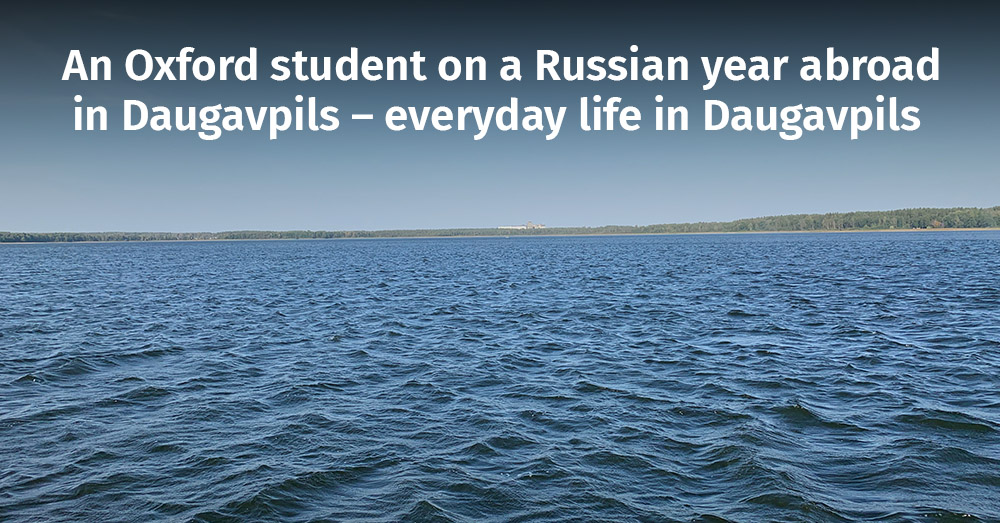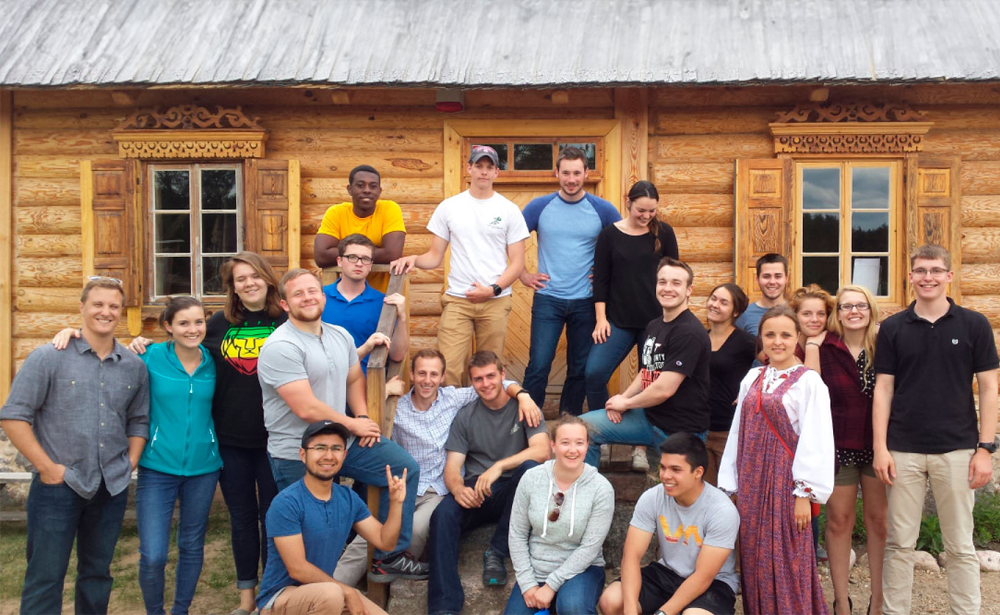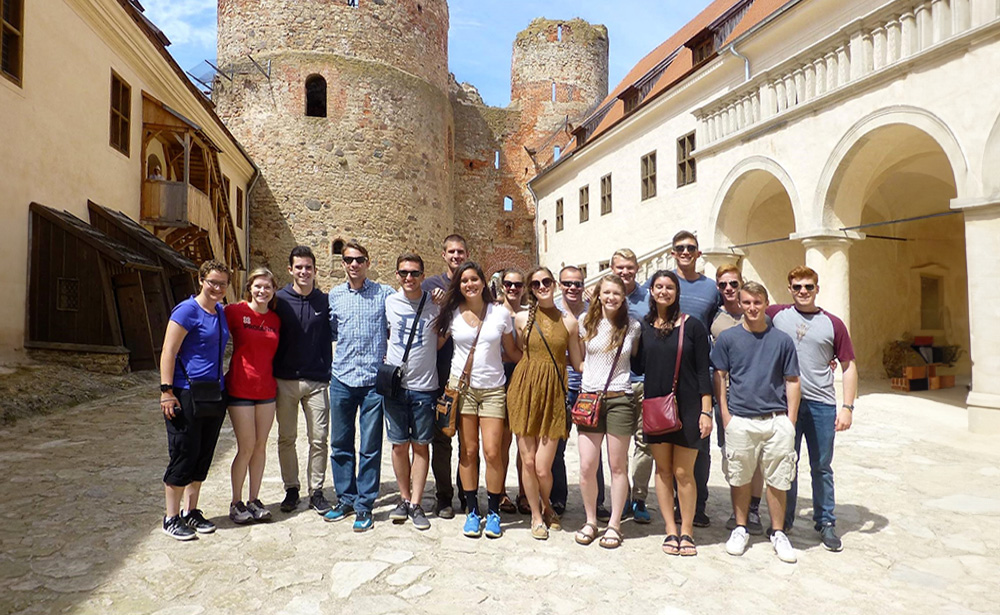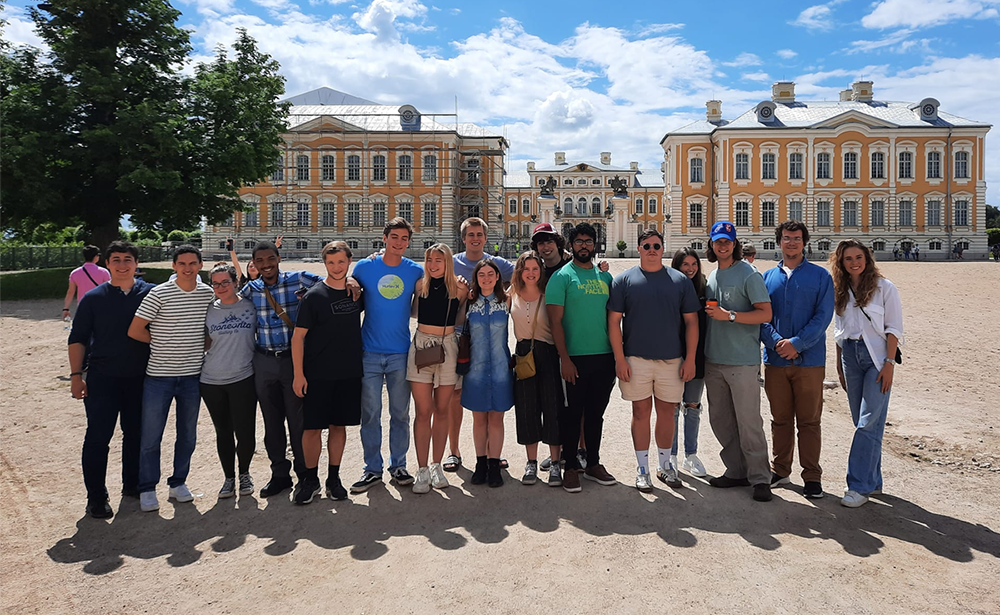An Oxford student on a Russian year abroad in Daugavpils – everyday life in Daugavpils
Now that I’ve been out of self-isolation for a few weeks now, I’ve had a lot of time to explore Daugavpils and get familiar with the place for the start of my year abroad. Despite being the second biggest city in Latvia, it is very compact and easily walkable. Although my job is located slightly out of the city centre, I’m able to commute on foot, which I really like.
My internship is at the Daugavpils Mark Rothko Art Centre. Mark Rothko, who identified as an abstract expressionist, was born in Daugavpils in 1903, and emigrated to the US shortly after. The Art Centre was opened in 2013 and holds a permanent exhibition of Mark Rothko’s work as well as regular temporary exhibitions from local and international artists.
I spend most of my time at the art centre either proof reading and editing documents published in English or working on translations for the website archive. I’ve found it’s been really good for my Russian as I speak to colleagues every day in Russian and I come across new vocabulary and grammatical structures from my translation work, which I write down and learn.
Aside from the job, through ”Learn Russian in the European Union” I have two Russian lessons a week at the university to help consolidate unfamiliar grammar forms and I sometimes do sessions with a peer communication partner which allows me more exposure to colloquial Russian. At university in the UK, I mostly learn Russian through reading Russian literature, but I’ve found that the literary language differs from Russian used in everyday communication, so I’m trying to get as much exposure to the latter as possible.
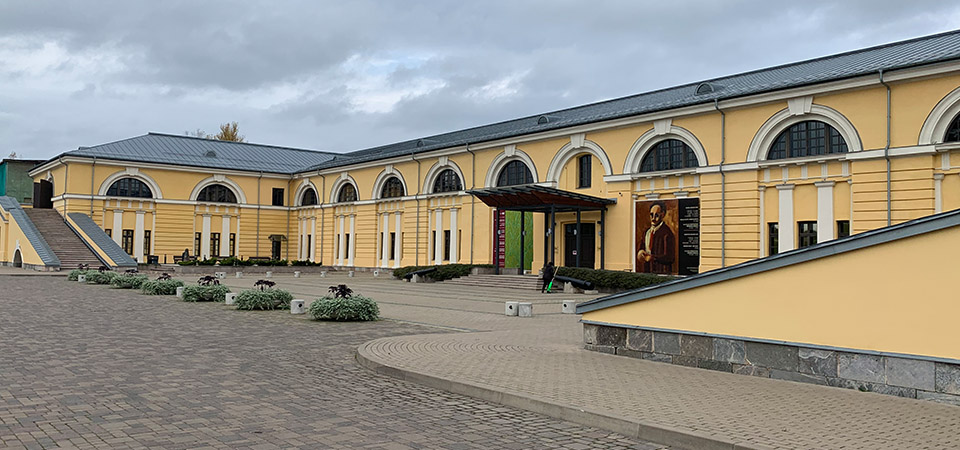
Despite working full-time and having some Russian classes on top of that, I still have a fair amount of free time! Unfortunately, the COVID restrictions in Latvia have limited the number of societies and events on offer, but I’ve still managed to find things to do. I’ve made it to the gym a couple of times and have been to some cafes and bars. As with most things in Latvia, the prices in cafes and bars are significantly lower than in the UK. I tend to pay anything between €1-3 for a coffee, and around €2-3 for a pint of beer, so it’s all very affordable. At lunch time, most cafes offer a ‘business lunch’, which constitutes a starter and a main course for €3-5, depending on the place.
I like going to Stropi, a lake located just outside Daugavpils, which can be easily reached by tram. Trams in Daugavpils charge a flat fare of €0.50 for all distances, so again it’s very budget friendly. I’ve also done weekend trips to Riga and Sigulda which I really enjoyed, and I’m planning to go to Jurmala, a seaside town just outside Riga, and to the lakes in Latgale.
You may be interested
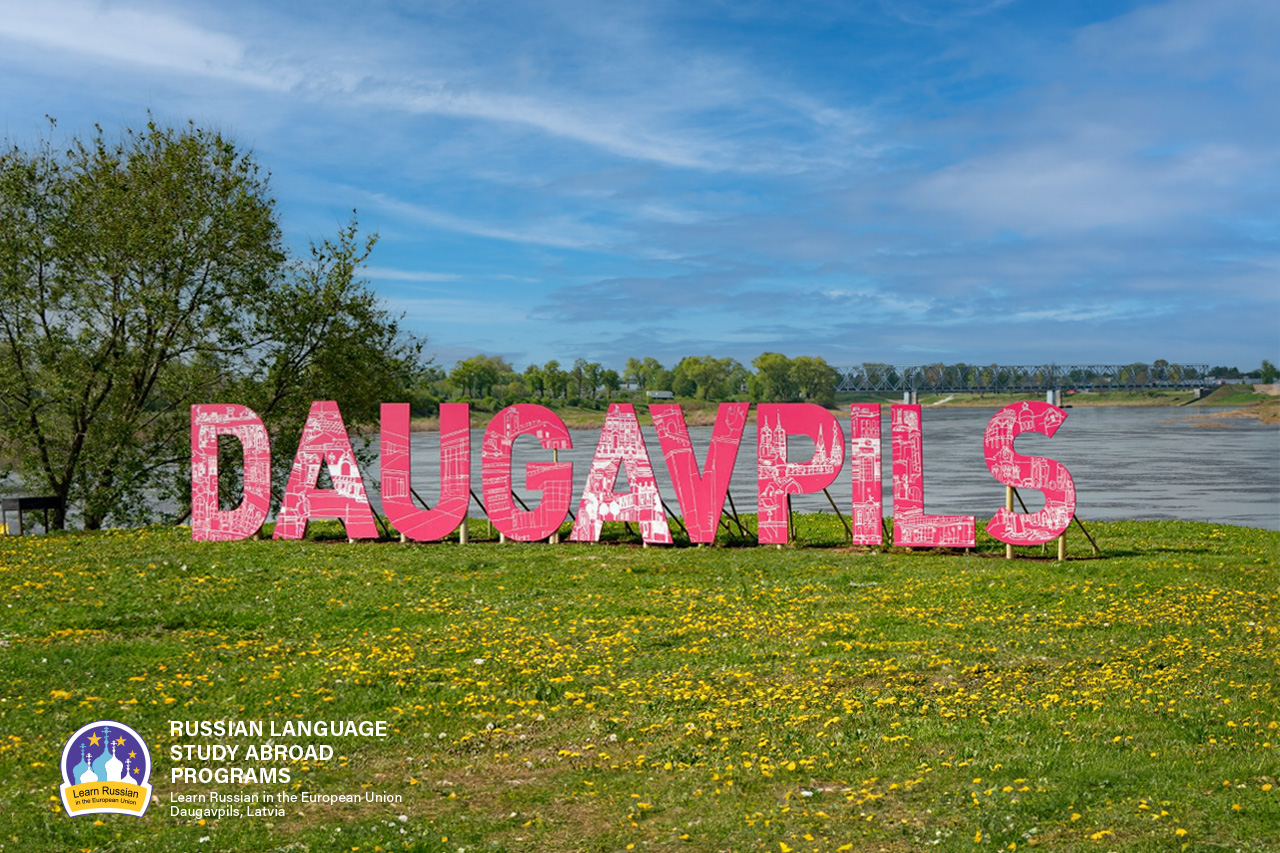
Why do people speak Russian in Daugavpils?
As it seems to us, Daugavpils is the best place to learn Russian now, because our city is situated in the EU and NATO, but at the same time 90% of the city’s population speak Russian at home.
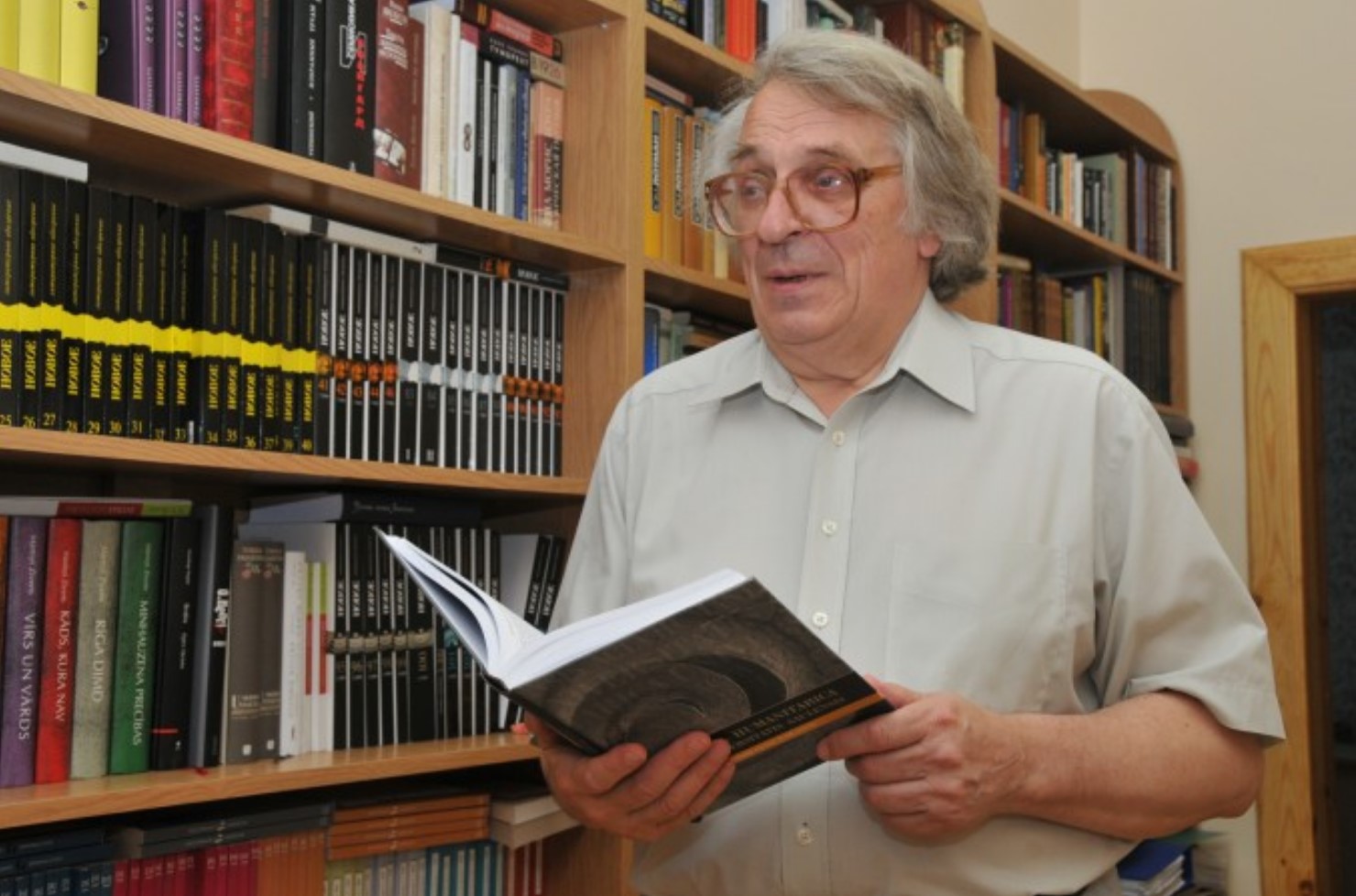
ЭТЮД О ДВИНСКЕ
Etude on Dvinsk by F.Fedorov
The Baltic region is one of the most catastrophe prone regions of the 2nd millennium, especially its second part; it is the centre of attraction of ‘geopolitical’ interests of the European world. Probably the most tragic fate has befallen to the eastern part of the present Latvia and its multi-titled town of Dinaburg – Dvinsk – Daugavpils. During its 730 years long history, the town went through five rather autonomous periods of development, five different lives (German, Polish, Russian, Latvian, Soviet), and at the beginning of the 1990s it entered into the 6th period.
The history of Dinaburg – Dvinsk – Daugavpils is the history of five attempts by the town to begin its life anew; and this is determined not only by the fact that the town was four times burned down and had to start life from scratch, but first and foremost because each of these periods was characterized by a total change of ethnos and the socio-cultural field.
The present article deals with the cultural space of the town in one of the most efficient periods of its development – from the 1860s till World War I.


